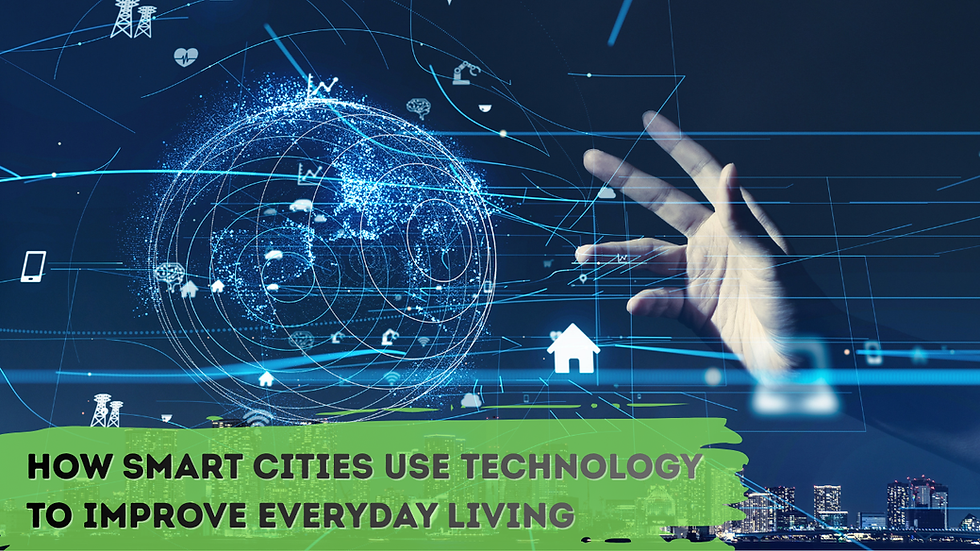How Digitalization Drives Business Sustainability
- Harley

- Nov 11, 2025
- 4 min read
In the rapidly evolving business landscape, sustainability has become a central concern for organizations worldwide. Companies are increasingly challenged to balance economic growth with environmental responsibility and social impact. In this context, digitalization—integrating digital technologies into business processes—emerges as a crucial enabler for sustainable operations.
Digital tools allow businesses to optimize resources, reduce waste, and improve efficiency, creating opportunities for long-term resilience. From energy management to supply chain optimization, the intersection of technology and sustainability offers tangible benefits across industries.
Understanding how digitalization contributes to sustainability is essential for companies seeking to thrive in a competitive and environmentally conscious market. This article explores the key ways digital transformation supports sustainable business practices.
Optimizing Resource Efficiency
One of the primary ways digitalization promotes sustainability is through improved resource management. Digital tools, such as advanced analytics and IoT sensors, allow companies to monitor energy consumption, water usage, and material flows in real time. By identifying inefficiencies, organizations can implement targeted interventions that reduce waste and conserve resources.
For example, smart energy management systems can track electricity usage across facilities and automatically adjust operations to reduce unnecessary consumption. Similarly, digital inventory management helps prevent overproduction and excess stock, which often leads to waste. By optimizing resources, companies not only lower costs but also minimize their environmental footprint.
Enhancing Supply Chain Transparency
Digitalization also drives sustainability by increasing supply chain transparency. Modern technologies like blockchain, digital twins, and AI-based tracking enable organizations to monitor every stage of their supply chain—from raw material sourcing to product delivery. This visibility helps businesses ensure compliance with environmental and social standards while identifying areas for improvement.
Transparent supply chains allow companies to make informed decisions that reduce carbon emissions and promote responsible sourcing. For instance, digital tools can trace the origin of raw materials, ensuring ethical practices and minimizing environmental harm. Enhanced supply chain oversight ultimately strengthens both sustainability and corporate accountability.
Facilitating Data-Driven Decision Making
Sustainable business practices are most effective when informed by accurate, real-time data. Digitalization empowers organizations to gather, analyze, and interpret vast amounts of operational data. This data-driven approach enables strategic decisions that support sustainability goals, such as reducing emissions, optimizing logistics, or designing eco-friendly products.
Advanced analytics and predictive modeling can also forecast resource needs, anticipate maintenance requirements, and optimize production schedules. By leveraging digital insights, companies can proactively address environmental risks while maintaining operational efficiency. This capability is particularly valuable in industries where resource scarcity or regulatory pressure is significant.
Supporting Circular Economy Initiatives
The circular economy, which emphasizes reducing, reusing, and recycling materials, benefits greatly from digital technologies. Digital platforms can track product life cycles, monitor usage patterns, and facilitate remanufacturing or recycling processes.
For instance, connected devices can report on their condition and performance, enabling businesses to extend product lifespans or recover materials at the end of use. Digitalization not only streamlines these processes but also provides data to measure impact and improve sustainability strategies over time.
Strengthening Organizational Resilience
Sustainability is closely tied to resilience—the ability to adapt to environmental, economic, and social challenges. Digitalization enhances resilience by providing real-time insights, predictive analytics, and agile operational tools. Companies can quickly respond to supply disruptions, energy shortages, or regulatory changes, reducing vulnerability while maintaining sustainable practices.
Moreover, digital platforms facilitate collaboration across departments and with external partners, enabling coordinated efforts toward sustainability. Organizations that embrace digitalization are better positioned to navigate uncertainties while pursuing long-term environmental and social objectives.
Case Example: Industrial Digital Transformation
An illustrative example of how digitalization supports sustainability can be found in industrial digital transformation. Companies are increasingly adopting integrated digital solutions to monitor energy consumption, optimize processes, and reduce environmental impact. This transformation encompasses everything from predictive maintenance and smart grid management to digital simulation of production lines.
For businesses exploring these solutions, resources like digitalization consulting services provide guidance on implementing technology effectively while aligning with sustainability objectives.
Conclusion
Digitalization is no longer just a technological upgrade; it is a strategic pathway to sustainability. By enhancing resource efficiency, improving supply chain transparency, enabling data-driven decision-making, supporting circular economy initiatives, and strengthening resilience, digital transformation allows businesses to achieve economic and environmental goals simultaneously.
As organizations continue to face climate challenges, regulatory pressures, and stakeholder expectations, embracing digital solutions is increasingly essential. Sustainability and profitability are not mutually exclusive, and digitalization provides the bridge that makes both achievable.
FAQs
What is digitalization in the context of business sustainability?
Digitalization involves integrating digital technologies into business operations to improve efficiency, reduce waste, and support sustainable practices.
How does digitalization help reduce a company’s environmental impact?
By optimizing energy usage, tracking resource consumption, and enhancing supply chain transparency, digital tools allow companies to lower emissions and minimize waste.
Can small businesses benefit from digitalization for sustainability?
Yes. Even small businesses can leverage affordable digital solutions like cloud-based analytics, smart inventory systems, or energy monitoring to improve sustainable practices.
What role does data play in sustainable digitalization?
Data provides insights into resource usage, operational efficiency, and environmental impact, enabling informed decisions that drive sustainability initiatives.
How can businesses start implementing sustainable digitalization?
Organizations can begin by assessing current processes, identifying areas of inefficiency, and integrating digital tools to monitor and optimize operations, potentially with the guidance of consulting services.





Comments